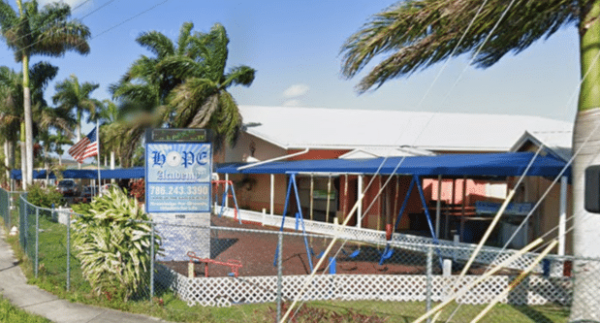
A physical-education teacher from Miami-Dade County is facing serious charges after being accused of sexually abusing a 14-year-old student, according to NBC Miami. Authorities say Bryant Caniz-Segovia, 20, engaged in an eight-month-long abusive relationship with the teen, spanning two academic years and the summer break.
According to the arrest report, Caniz-Segovia was employed at Hope Academy, a private school located at 1100 Old Dixie Highway in Homestead, FL, when the alleged abuse began. The teen told investigators that between February and October, she and Caniz-Segovia engaged in sexual activity on three or four occasions. She also revealed that they exchanged explicit images over social media during the same period.
On Friday, Caniz-Segovia was arrested and charged with two counts of lewd and lascivious battery on a child. He was questioned by detectives before being booked into the Turner Guilford Knight Correctional Center. Court records confirm that he posted bond and has since been released, with a strict order to have no contact with the victim.
The allegations have sent shockwaves through the local community, raising concerns about student safety and the responsibilities of educators. Further legal proceedings will determine the outcome of the case, as authorities continue their investigation into the disturbing claims.

When allegations of abuse arise in school settings, families are often left grappling with confusion and anger. The recent case involving a Miami-Dade private school teacher accused of sexually abusing a 14-year-old student has sparked questions about the legal rights of victims. Attorney Jen Lipinski, a Florida sexual abuse lawyer, shares practical steps families can take to hold perpetrators and institutions accountable, offering clarity on a difficult and emotional process.
Editor Darla Medina: Jen, with cases like this, what are the immediate legal steps families can take when their child has been harmed by someone in a position of authority at a private school?
Attorney Jen Lipinski: The first step is reporting the abuse to law enforcement, as was done here. Beyond the criminal case, families can also consider a civil lawsuit against both the individual perpetrator and, potentially, the institution. In this case, Hope Academy could face scrutiny if it’s determined they failed to provide adequate safeguards or oversight.
Medina: In your experience, how can families prove institutional negligence in these situations?
Lipinski: It often comes down to whether the school ignored warning signs or failed to conduct proper background checks before hiring. If there’s evidence that the school was aware of inappropriate behavior and didn’t act, that strengthens the case. Schools have a responsibility to create a safe environment for students, and when they fall short, they can be held accountable.
Medina: What compensation might victims and their families seek through civil litigation?
Lipinski: Families can pursue damages for emotional distress, therapy costs, and other expenses tied to the trauma. These cases aren’t just about financial compensation—they’re also about holding institutions accountable and sending a message that this behavior won’t be tolerated.
Medina: Finally, what advice would you give to families navigating this process?
Lipinski: Don’t go through it alone. Work with an attorney who has experience with abuse cases, and seek support from counselors or advocacy groups. It’s a difficult journey, but there are resources to help victims and their families rebuild their lives.
If your family has been impacted by abuse at the hands of a private school teacher, you don’t have to face this alone. Legal action can help hold individuals and institutions accountable while providing a path toward healing. Contact us today for a free consultation to discuss your legal options and take the first step in protecting your rights and your child’s future.
 info@legalherald.com
info@legalherald.com